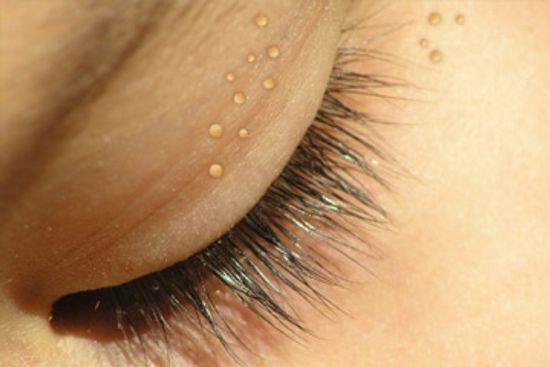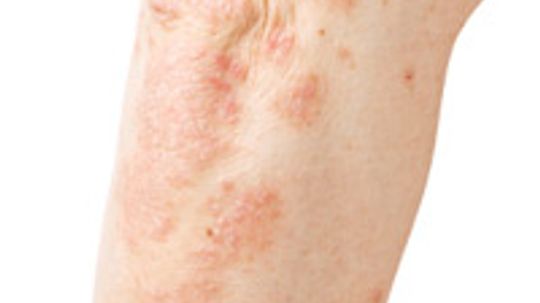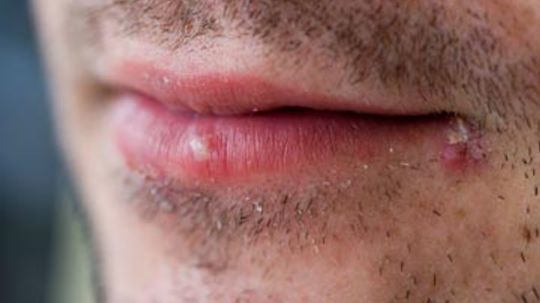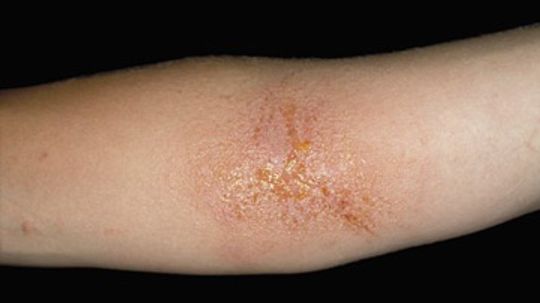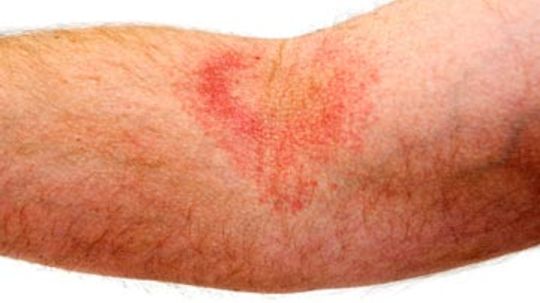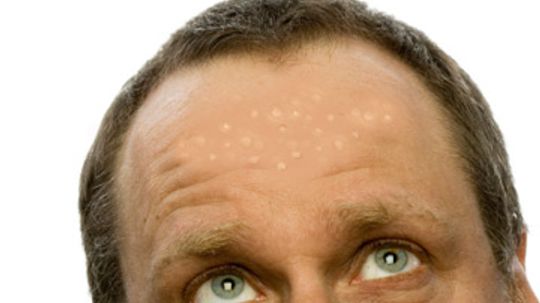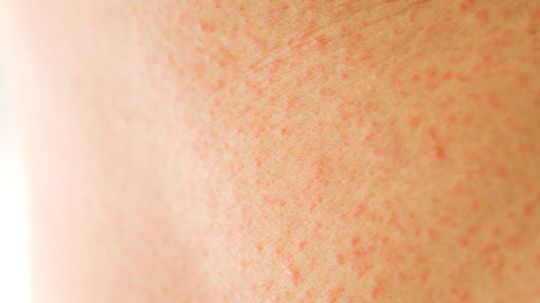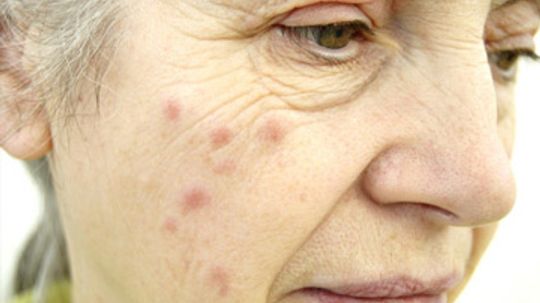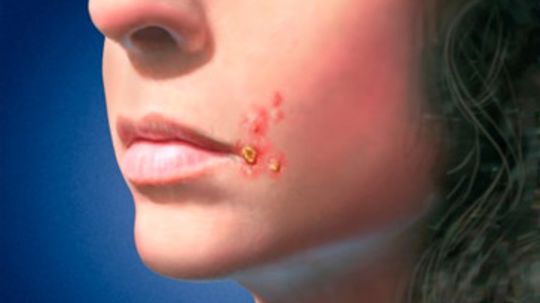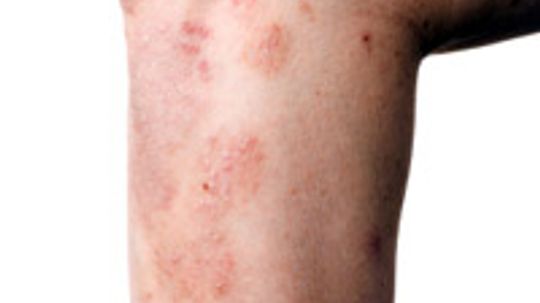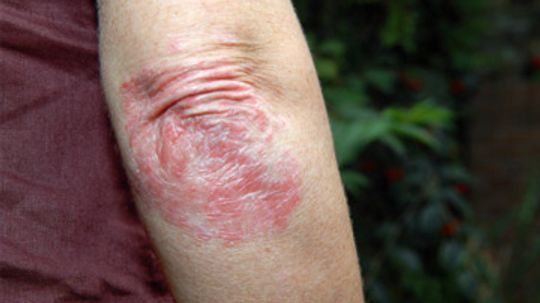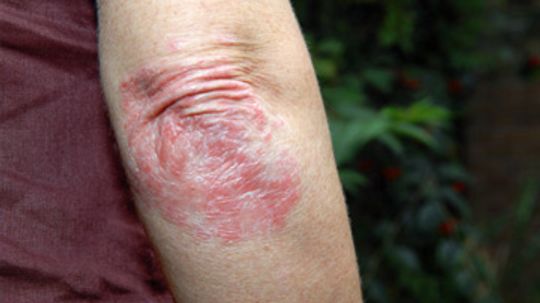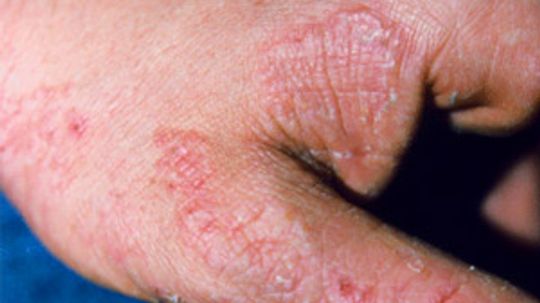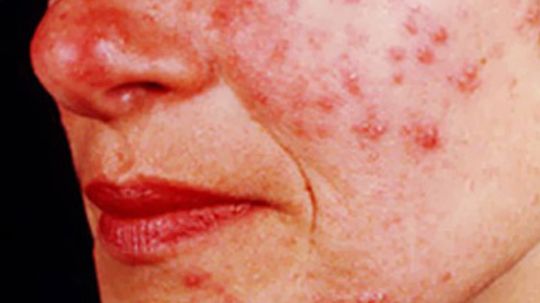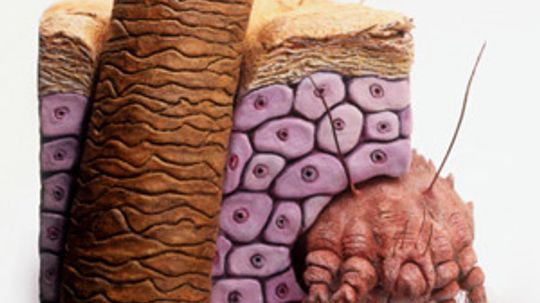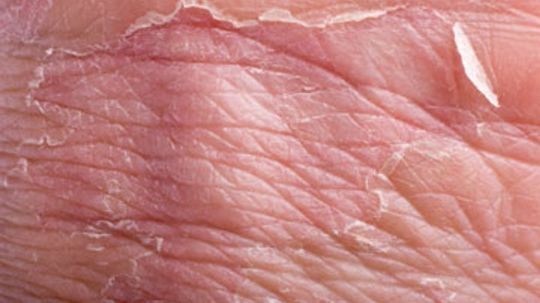Medical Skin Problems
Medical skin problems can be serious and life-threatening. Understanding medical skin problems is extremely helpful in diagnosing them early. This section covers everything to do with medical skin problems.
Learn More / Page 2
A new mole doesn't necessarily mean you have cancer -- people often develop new moles early in life. Of course, that doesn't mean that you shouldn't keep an eye out for them.
The same types of fungi that cause ringworm and jock itch can also lead to athlete's foot. What steps can you take to avoid getting this uncomfortable -- but treatable -- skin condition?
When bacteria enter your body through a break in your skin, it can create one of several types of infections. How do you know you're infected and whether it's serious enough to see a doctor?
Advertisement
You're stressed out about a speech you have to give at work and you start to feel a prickling and burning in your lip. Soon, a hard bump starts to form. But you know this isn't a zit; you're getting a cold sore.
Common warts aren't dangerous. They'll go away if they're left untreated, but this can take anywhere from months to years. However, they're an eyesore and a nuisance, so you may want to get rid of them -- stat.
Ugh -- you have an inflamed, itchy, red rash that burns. It could be contact dermatitis caused. But what's caused it and how can you make it go away?
You haven't been near poison ivy in weeks, you aren't allergic to latex and you don't have allergies that give you hives -- at least, you don't think you do. So what's that red patch of itchy dry skin? It could be a type of eczema.
Advertisement
Ehlers-Danlos Syndrome is a genetic disorder that causes the skin to be overly stretchy or joints to overextend. What causes this syndrome and how can you tell whether you have it?
Filiform warts form on the delicate tissue of the face, neck, eyelids and lips. And given how much time we spend gazing into one another's eyes, these cosmetic blemishes can be a real drag to live with.
Flat warts are benign growths and don't cause you any pain. But even if they're just a cosmetic problem, you probably want them to go away. Can you shake them for good?
Most people love being outside when the weather is hot -- having barbecues, going to the beach, riding bikes and taking long walks. But all this outdoor activity can put you at a greater risk for developing heat rash.
Advertisement
Having hives can make you feel like you've been the all-you-can-eat buffet for a group of really hungry mosquitoes. And, as if having really itchy welts isn't bad enough, hives can burn and sting. Just what makes these nasty bumps appear?
Impetigo is a skin infection caused by bacteria that normally live on your skin without causing harm. So what causes these bacteria to suddenly cause the itchy rash of impetigo?
Dante Rosario, tight end for the Carolina Panthers, was once hospitalized for an infection caused by an ingrown hair. While such infections are rare, ingrown hairs can be unsightly and painful, so how can you prevent them?
When brownish patches appear on their skin, many people don't even realize they have melasma. Without targeted treatment, will this common skin condition vanish on its own?
Advertisement
Nummular dermatitis, a skin condition that affects two in every 1,000 people, is often misdiagnosed as ringworm. But what causes the condition, and how can you correctly identify it?
Periungual warts pop up near the nail bed on your hands and feet. Left untreated, these warts can have lasting effects on the health of your nails. We've got a few ways to avoid and cure these unsightly growths.
That red, itchy circle of skin can mean one of many things, including eczema, psoriasis or ringworm. If it turns out to be pityriasis rosea, however, you won't have much to worry about after a few weeks.
From morning to night, your feet are constantly on the move. However, the pain and inconvenience associated with plantar warts can stop you dead in your tracks.
Advertisement
More than 7.5 million Americans have psoriasis, according to the National Institutes of Health, making it one of the most prevalent autoimmune diseases in the country. But what causes the disease, and is there a cure?
As if having a flushed, red nose weren't enough, rhinophyma's effects are much more than just cosmetic. But how can doctors treat this condition when they don't know the causes?
It looks like acne or eczema but isn't, and it can result in a red nose that people associate with alcoholism. It's rosacea, a common skin condition most people don't know anything about.
Advertisement
It's a scene straight out of a cheap horror movie: microscopic creatures crawling on your skin, eating your flesh and laying their eggs inside you. But it's not fake, it's real and it's called scabies.
Although it's rare, infants and young children can require burn treatments without ever being burned -- these children have a rare disease called scalded skin syndrome that's caused by the staph bacteria that normally live on skin.




